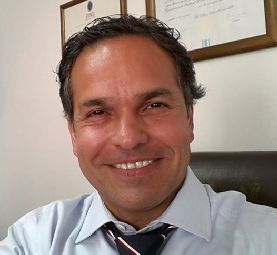Last week the BA High Court of Appeal, with the opinion of Judge Daniel Carral and the concurring opinion of Judge Ricardo Maidana, issued another landmark decision for the consolidation of the jury system.
Its importance is that -as never before- it brings to the fore one of the fundamental characteristics that is proper and essential to jury trials: the impartiality of the trier.
In the case, the defender noticed -with great shrewdness - he had a new and original possibility to challenge the conviction. In this case, the grounds for appeal did not involve any jury arbitrariness in the assessment of the facts, nor error in the instructions (common grounds for an appeal under the jury system), but rather, a claim about the lack of impartiality of the trier, which in this case was constituted by jurors.
A bench trial is far from offering litigants a similar possibility: it is not possible to challenge professional judges with no cause (peremptory challenges) and the event of being successful on a challenge for cause against a professional judge would be extremely difficult. In jury trials, however, the discussion about impartiality is natural.
 |
| J. Daniel Carral |
After the jury delivered a guilty verdict the defense attorney pointed out some inconsistencies in Jurors’ responses during jury selection (voir dire). The Prosecutor of the B.A. High Court of Appeal, Alejandra Moretti, refuted the claim lucidly and reaffirmed the guilty verdict, quoting the best legal doctrine from the common law legal system.
Judge Carral's opinion was focused on the issue of impartiality. He quoted the leading case of the United States Federal Supreme Court in "McDonough Power Equip. V. Greenwood" and he finally reaffirmed the verdict in a prudent and balanced decision. The expression "victim of crime" which, apparently, jurors would have hidden from the defender during the interrogation at the voir dire, was properly put in its place thanks to Judge Carral's opinion.
 |
| J. Ricardo Maidana |
The other notable aspect of the ruling is that for the first time an appellate court at this level introduces the expression "voir dire" to the Argentinean and Latin American legal lexicon.
"Voir dire" is an expression derived from the ancient French that is universally used to name this crucial audience to select an impartial jury.
With this ruling the BA High Court of Appeal - as well as the Court of Appeal in Neuquén and the Supreme Court of Neuquén-, has addressed several essential aspects of jury trials, setting an exemplary precedent that has nothing to envy to those rulings from the common law:
1) Verdict review (see cases Mazzon and Castillo).
2) Constitutionality of preventing the prosecutor from attacking a not guilty verdict delivered by a Jury. (See cases Lopez and Antonacci).
3) Hung jury and new trial (see case Guerendiain).
4) The test of the reasonable jury (see case Castle).
5) Instruction on the standard of proof of "reasonable doubt" (see case Castillo).
6) Voir dire or jury selection audience (see case Aref).
The mere enumeration of this plexus of precedents accounts for the key role that is being played by the BA High Court of Appeal to promote the proper functioning of the jury system. As Professor Valerie Hans argues, "a fair and effective jury system requires competent jurors, people who relies on their verdicts, and judges and courts who respect the rules of this institution, respect jurors, and, fundamentally, that do not distort with their rulings the delicate balance of the jury system". This is exactly what is happening in the Province of Buenos Aires with its High Court of Appeal.

